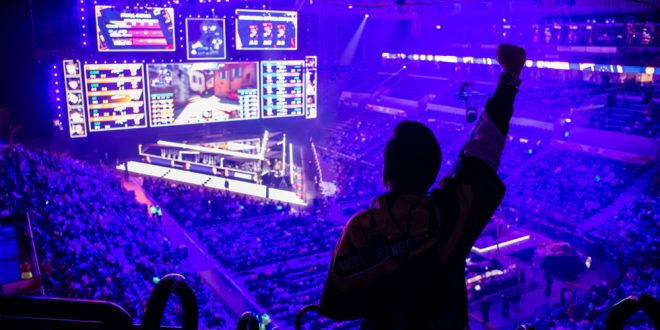Every year the line gets a little thinner between reality and the virtual world. That is certainly the case when it comes to the growth of Esports worldwide and the commensurate growth in fantasy sports gambling associated with it. For now, such activities are generally allowed worldwide but are not entirely welcomed by the authorities. A lot of what is happening in this space is that a lot of early adopters are hoping to stake their claim on Esports fantasy gambling while it is still in its infancy and then taking it big time once the idea catches on.
One of those early adopters is Charlo Barbosa, who is betting heavily on markets such as India and the Philippines as a way of refining his business model in these now-opening venues. Once everything is running smoothly and the regulatory picture refines itself further, he hopes to capitalize upon his experience by taking his ever-growing Esports empire into the big money markets elsewhere in the world.
Simply put, it is less costly to enter these largely unexplored markets than it would be to jump into the arena against big money operators already entrenched in more established territories. Building up a subscriber base and developing an innovative approach is what Barbosa is banking on in his quest to challenge for a spot at the biggest tables.
While there is plenty of money to be made in the fantasy Esports arena, a lot of players are counting on this leading to bigger things down the road. For now, the regulatory structures are not in place to effectively oversee actual gambling on the blossoming numbers of Esports leagues. Once this hurdle is crossed, however, the fantasy Esports impresarios anticipate that they will be very well-placed to transition right into the expanded opportunities which will be on offer.
Among all the stakeholders, the sense is pretty near universal that this is largely a waiting game for now, especially in markets such as India which does not allow online gambling activities. Fantasy betting is operating in a somewhat gray area legislatively speaking, and the government seems inclined to let this continue while it studies the situation.
Yet the main concern of narrowly-focused Esports companies such as Barbosa’s GoodGamer is that a lot of competitors are stretching the definition of fantasy gambling to where it may become indistinguishable from actual online gambling. This in turn could lead to the proroguing of the entire fantasy gambling space if it were to become a problem or lead to some sort of scandal. Barbosa and many others are quick to point out that they are operating by the book and have no interest in letting the industry devolve into the Wild West.
Their desire is for an orderly and ever-expanding digital footprint that runs an honest game and provides great value for its growing list of subscribers. The truth is that time and demographics are on the side of anybody who gets into the virtual sports industry early.
Traditional sports are gazing in alarm at the increasingly aged demographic of their fans. The next generation seems much more interested in online leagues where they themselves can participate as equals and not merely spectate as someone who is not athletic enough to be on the field.
For Barbosa, the patient nurturing of GoodGamer is merely a small delay in his quest to erect the next great sporting empire. With the youth of today competing via smartphone, it is only a matter of time until his bet on the future begins to pay enormous dividends to the ones with the foresight to see where the future is heading.


